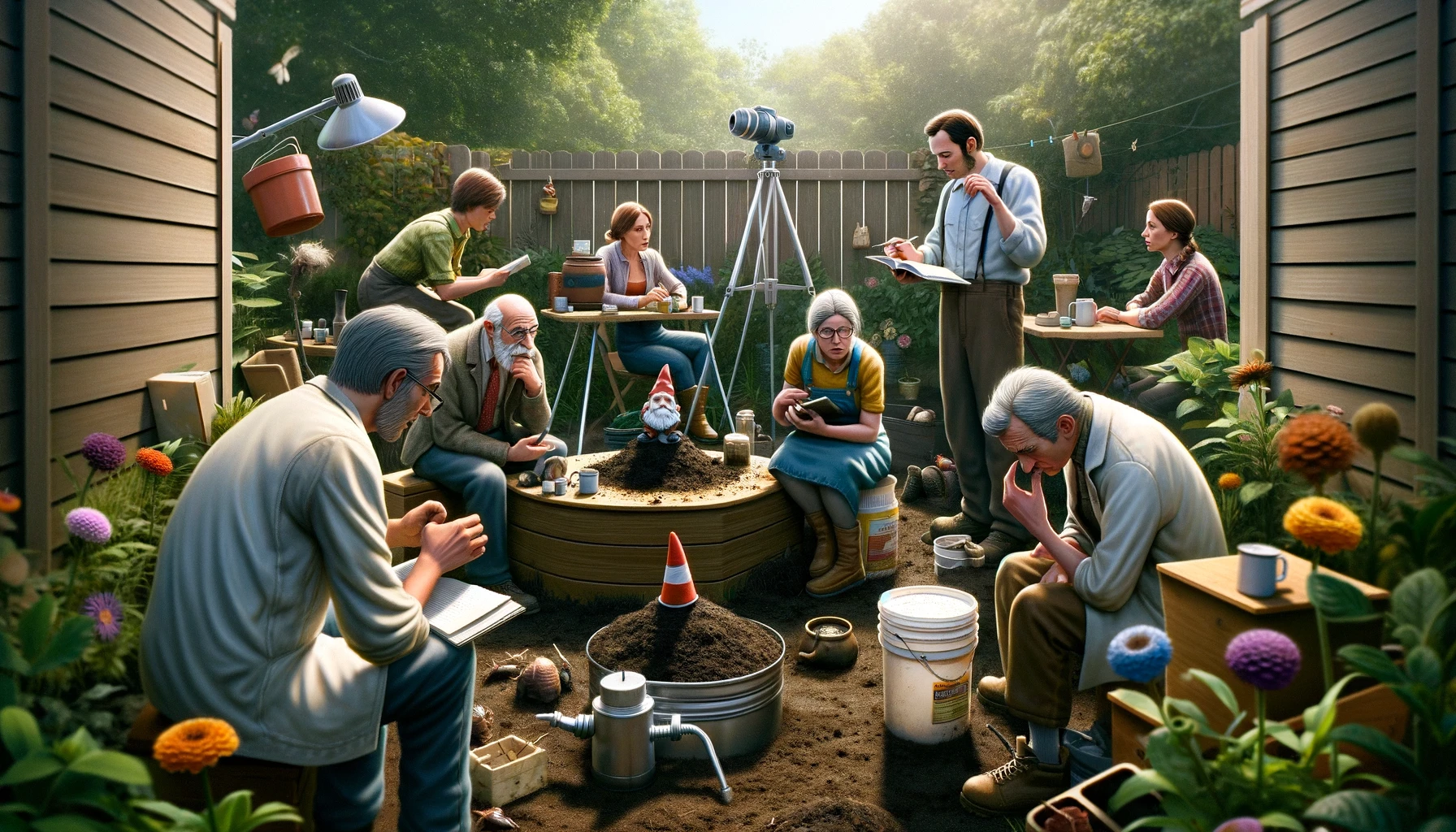In a groundbreaking discovery that has sent shockwaves through the already niche world of organic gardening, a new study suggests that compost enthusiasts may possess an even more profound level of social awkwardness than initially believed.
The study, conducted by the Institute for Fertilizer Fanatics (IFF), analyzed the behavior of compost devotees in a variety of settings, including farmers’ markets, community potlucks, and heated online compost forums.
“We’ve always known composters were, let’s say, ‘passionate’ about their decomposing scraps,” admitted lead researcher Dr. Melinda Mulch. “But this study reveals a whole new layer of awkward conversational fixations and an unwavering ability to steer any conversation towards the wonders of worm castings.”
Among the key findings of the study:
- Compost enthusiasts are more likely to initiate conversations by discussing the optimal carbon-to-nitrogen ratio rather than the weather.
- They exhibit an alarming tendency to describe their compost piles in suspiciously romantic terms (“Oh, she’s a real beaut, hot and steamy!”)
- They believe impromptu “compost audits” of friends’ trash bins are a perfectly acceptable form of social bonding.
The study has drawn mixed reactions. Critics argue the methodology is flawed, citing obvious researcher bias. “Of course composters seem weird if all you do is study their weirdness,” scoffed Dr. Harriet Trowel, a prominent compost advocate, while vigorously examining a handful of soil.
But mainstream society seems relieved to have their suspicions confirmed. “I always knew that guy who brings up his compost heap at Thanksgiving dinner wasn’t quite right,” remarked one relieved dinner guest.
Despite the controversy, the IFF remains defiant. Dr. Mulch insists their research serves a purpose.
“Understanding compost enthusiasts is vital,” she argues, her eyes gleaming with slightly unhinged enthusiasm. “They may be the key to deciphering the mysteries of decay, the complexities of the natural world…and teaching us all that maybe, just maybe, it’s best to avoid them at dinner parties.”
